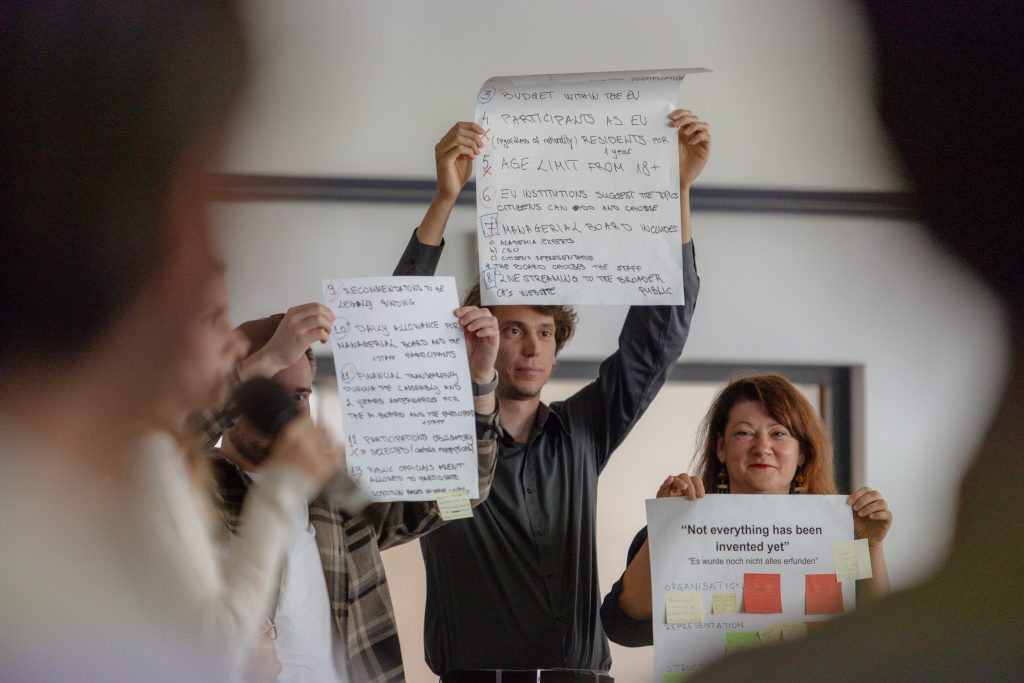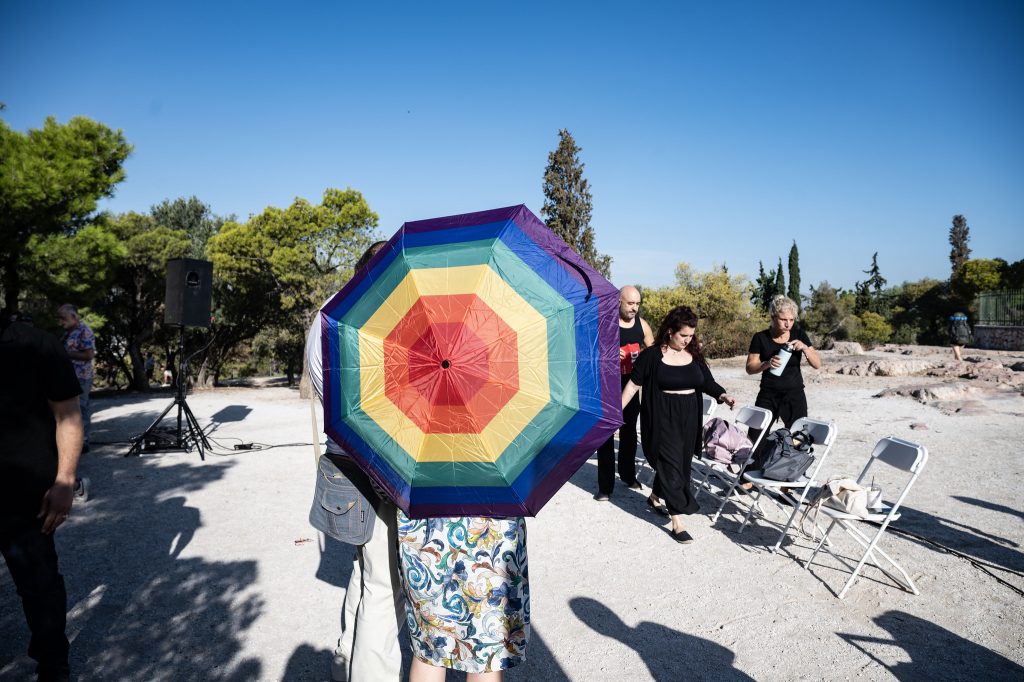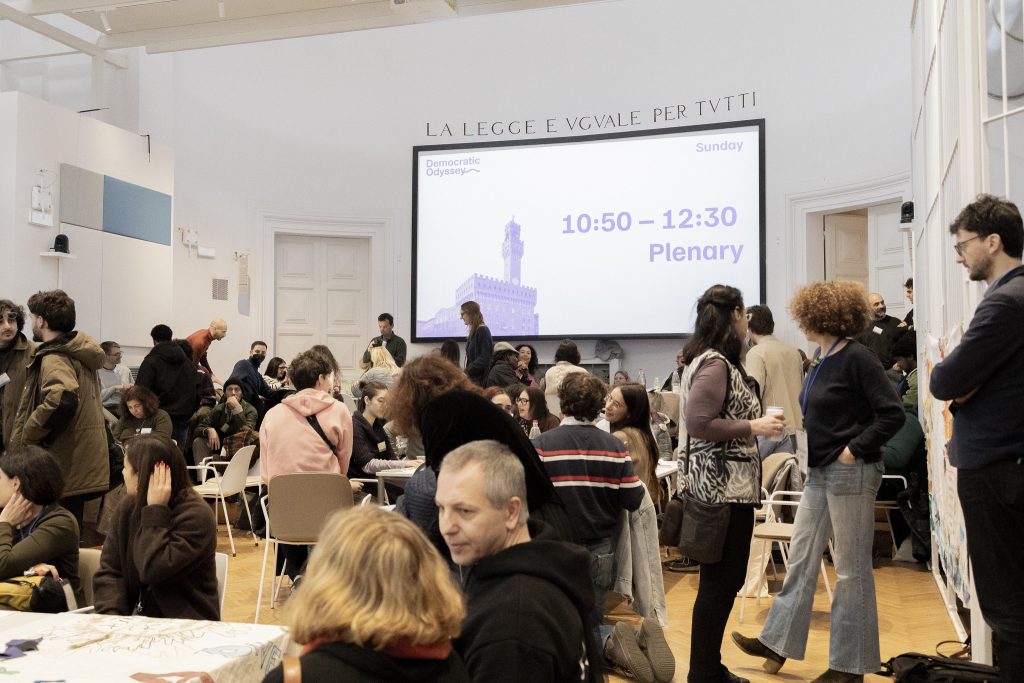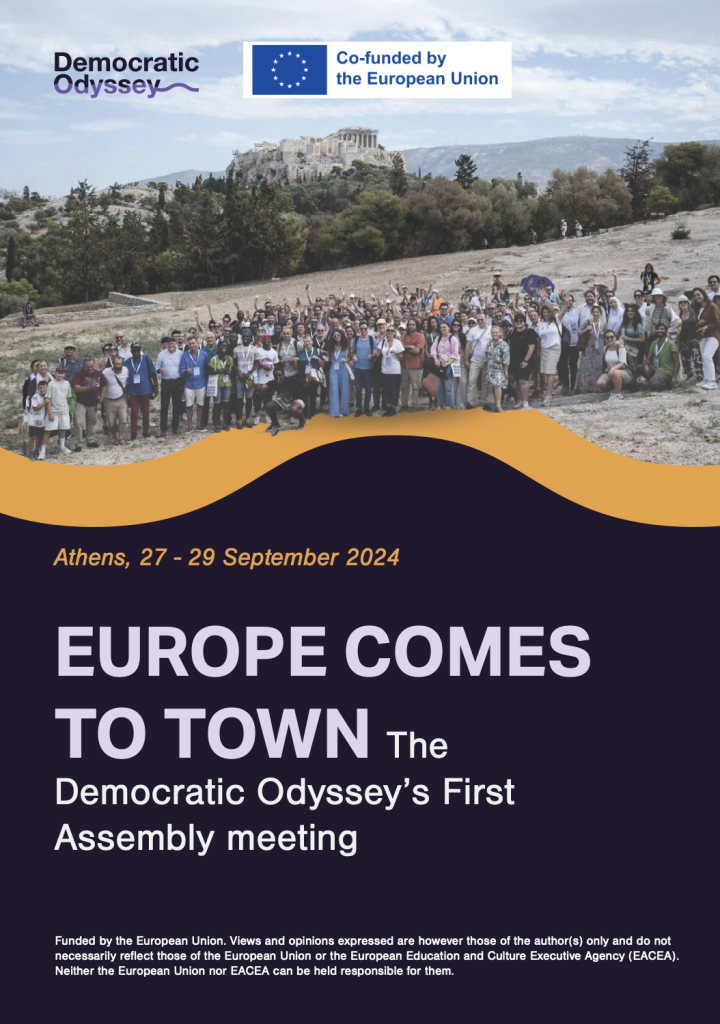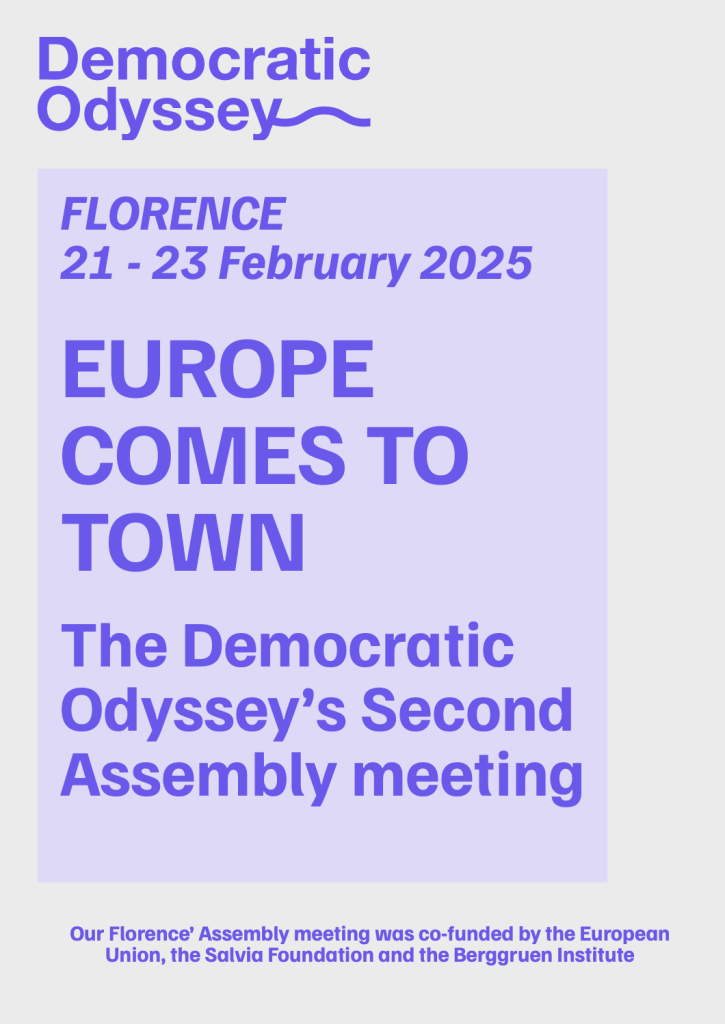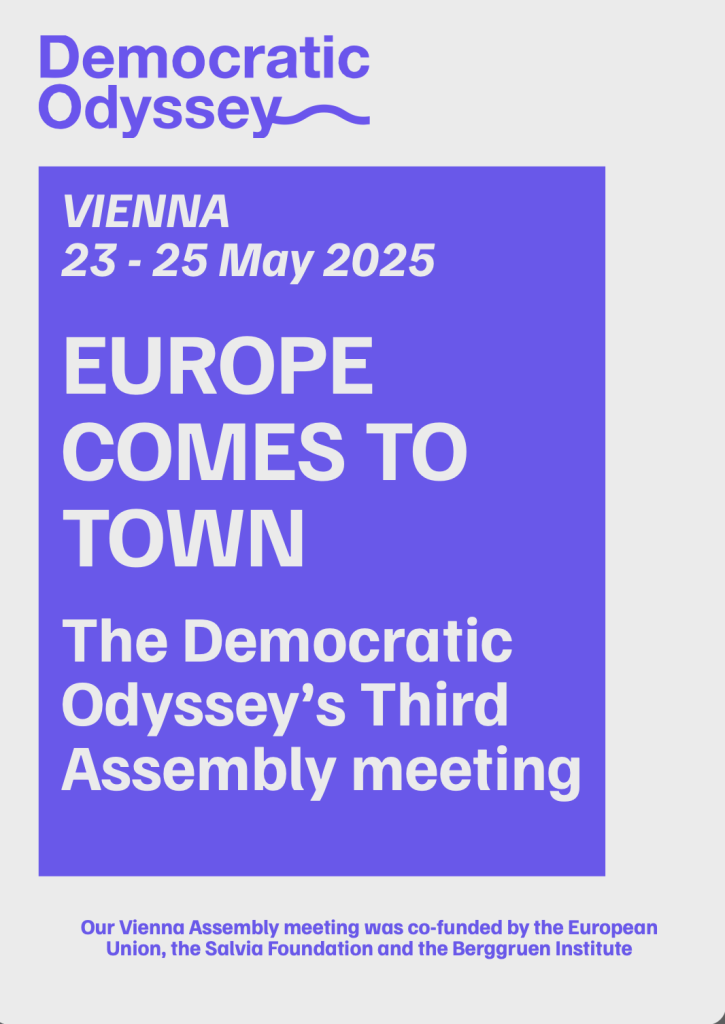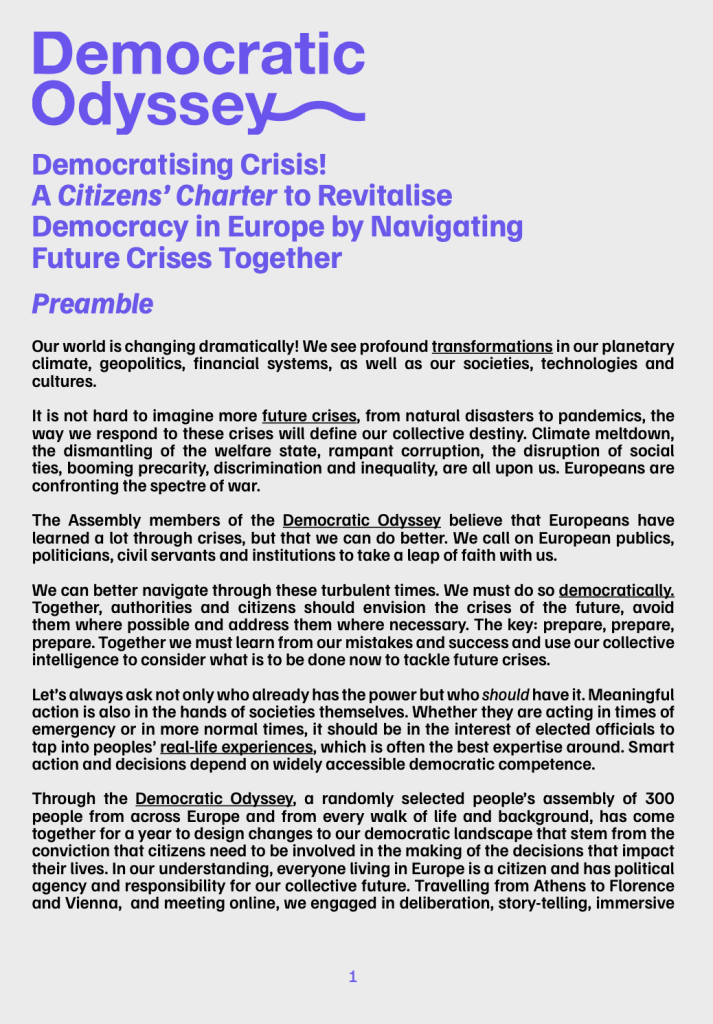The Democratic Odyssey was conceived and launched as a long-term journey through the rugged landscape of democratic contemporary pathologies. As a decentralised, collaborative and transparent exercise of crowdsourcing and co-creation, it seeks to bring together as many contributors as possible in different capacities and with different roles:
Concept and Methodology
The methodology behind the Democratic Odyssey builds on three key concepts – Citizen Assemblies, Sortition, Institutionalisation – and three key instruments – the Modular Framework, the Constituent Network, and the Flotilla. Each answers to a key question, which together guide the project’s implementation towards achieving its objectives.
Citizen Assemblies
The Democratic Odyssey centers on Citizen Assemblies, which are designed to include citizens in EU decision-making. These assemblies are transnational, interconnected, transparent, and empowering. They involve over 170 citizens from at least 15 EU Member States, engaging in multiple sessions to deliberate on key issues. The assemblies are intended to foster a sense of belonging to the EU and influence the EU through inclusive citizen participation.
Sortition
To ensure diversity, participants in the Citizen Assemblies are selected through sortition, a democratic lottery process. This method guarantees equal representation across various socio-economic backgrounds, such as age, gender, location, and ethnicity. Sortition ensures that all citizens have a fair chance of being included, thus bringing traditionally underrepresented voices into the decision-making process.
Institutionalisation
The project aims to institutionalize the Citizen Assembly concept as a lasting part of European democracy. The goal is to create a self-sustaining process of citizen participation that evolves over time. This institutionalization will embed the assemblies within the broader ecosystem of EU democracy, complementing existing participatory tools like the European Citizens’ Initiative.
Key instruments
The Modular Framework
This framework supports mutual learning and the institutionalization process by providing a knowledge base for the Citizen Assemblies. It relies on the collaborative efforts of the Constituent Network and offers a transparent and crowdsourced platform for collective decision-making.
The Constituent Network
The network consists of stakeholders like trade unions, media, NGOs, and citizens’ groups. It plays a critical role in shaping the process, providing feedback, and ensuring accountability. This network also helps expand the project’s reach and contributes to the long-term goal of establishing a permanent Citizens’ Assembly in the EU.
The Flotilla
The Flotilla is an outreach campaign designed to engage a broader public (“maxi-public”) and raise awareness about participatory and deliberative processes in the EU. It involves a community of supporters who assist in disseminating the project’s outputs and mobilizing constituencies for the institutionalization of the Citizens’ Assembly.
The core consortium
The European University Institute’s STG Transnational Democracy Programme launched the Odyssey in 2022 as scientific coordinator and academic partner, in collaboration with European Alternatives, which serves as project and methodologies coordinator.
Particip’Action, the deliberative practitioners, are overseeing co-design, budgeting and facilitating for the 2024 assembly. European Alternatives, the transnational civil society organisation, are building bridges with grassroots networks, bringing minorities and non-EU citizens into the process, and introducing experimental and theatrical formats of assembly. The Citizens Takeover Europe coalition of over 60 civil society organisations is involved in co-designing the process and advocacy. The Democracy and Culture Foundation, based in Athens, contributes expertise in arts, technology and communications.
Now the Democratic Odyssey project is spearheaded by a strategic group of complementary partners, each playing a critical role in the project’s success.
European Alternatives (EA):
- Role: Project coordinator, responsible for methodology design, assembly organization, and ensuring the project’s alignment with EU civil society efforts.
- Expertise: Over a decade of experience in transnational citizen engagement, including organizing citizens’ assemblies across Europe, and extensive communication and impact evaluation skills.
European University Institute (EUI):
- Role: Academic partner, providing research expertise on European democracy and ensuring systematic mutual exchange among scholars, citizens, and decision-makers.
- Expertise: Interdisciplinary research and coordination of democratic forums, with strong administrative support for project management and evaluation.
Particip-Action (PA):
- Role: Practitioner partner, responsible for designing and facilitating transnational citizens’ assemblies and training facilitators.
- Expertise: Experience in organizing large-scale, multilingual, participatory processes, with a network extending beyond Europe to the Global North and South.
Mehr Demokratie (MD):
- Role: Civil society partner, focusing on public mobilization, campaigning, and integrating direct democracy into participatory processes.
- Expertise: Pioneering work in citizens’ assemblies and direct democracy, with a strong track record in advising on democratic innovations at multiple governance levels.
Together, these partners bring diverse expertise and resources to implement the Democratic Odyssey project, ensuring its objectives are met effectively and sustainably.
Learn more
Repository of Training Materials
Repository of Knowledge Resources
Repository of Civic Engagement Resources
Report on the Deliberation Academy
Involvement of stakeholders and general public
Evaluation Report of the Democratic Odyssey’s Assembly
Report on Dissemination Event for Ordinary Citizens
Report on the follow up event / Brussels, October 2025
Athens / September 2024
Athens Assembly Report / Sept 2024
Democratic Odyssey Transnational Assembly in Athens
Online Gatherings
Online Gathering Assembly Session Nov 2024
Online Gathering Assembly Session Apr 2025
Florence / February 2025
Florence Assembly Report / Febr 2025
Vienna / May 2025
Vienna Assembly Report / May 2025
Funders and Project Partners




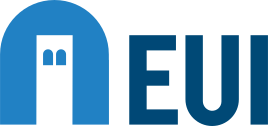

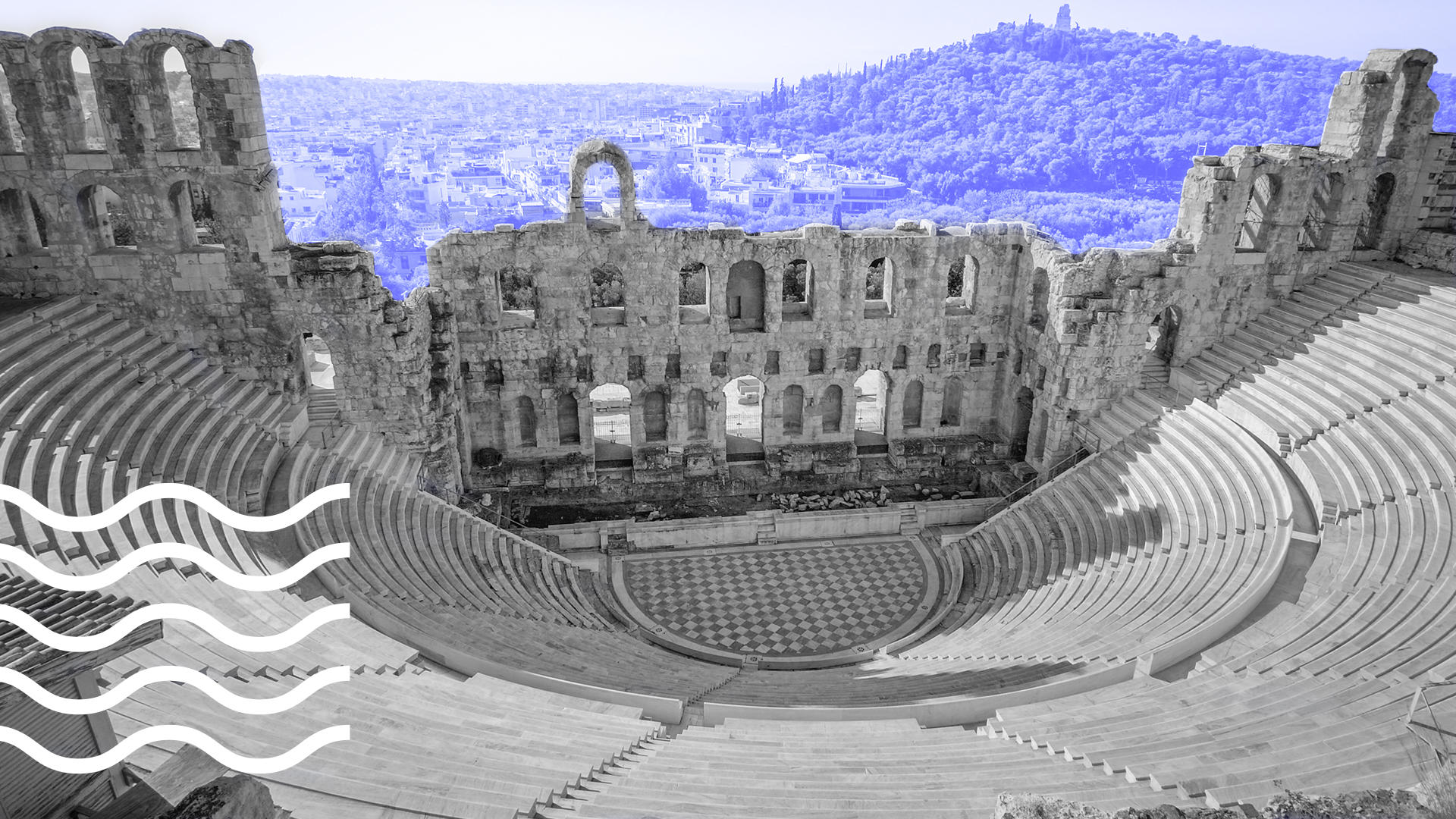
Duration of Project
2023 - 2025
Partners
European University Institute, Participaction, The Democracy & Culture foundation, DemNext, MissionsPubliques, Citizens Takeover Europe, Bergrueen Institute, Mehr Demokratie, RealDeal, Phoenix, Helenic Foundation for European & Foreign Policy.
